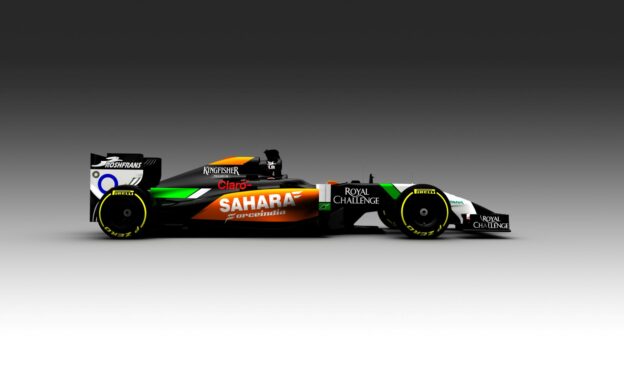2014 F1 cars not too slow hopes Hulkenberg

Most recent 15 F1 News items:
Thursday, 24 Apr 2025
Hamilton's Ferrari Struggles: Could Retirement be the Next Step? - 2Wednesday, 23 Apr 2025
'Ice-Boy' Piastri: The Story Behind a Cool New F1 PersonaTuesday, 22 Apr 2025
What's McLaren's True Advantage? Norris and Piastri DisagreeMonday, 21 Apr 2025
Norris' Plan Ahead of Miami GP: A Much-Needed Break - 1Sunday, 20 Apr 2025
Is the Italian Press Losing Faith in Lewis Hamilton? - 2✅ Check out all our F1 News & Updates »
 Grosjean recalls his crash and escape in detail 0 comments | posted 4 years ago
Grosjean recalls his crash and escape in detail 0 comments | posted 4 years ago Ferrari Under Pressure: Heated Vasseur Slams Hamil... 4 comments | posted 3 days ago
Ferrari Under Pressure: Heated Vasseur Slams Hamil... 4 comments | posted 3 days ago Is the Italian Press Losing Faith in Lewis Hamilto... 2 comments | posted 5 days ago
Is the Italian Press Losing Faith in Lewis Hamilto... 2 comments | posted 5 days ago✅ Check out the last 50 F1 Fan Comments
| Miami F1 Grand Prix: | Available |
| E. Romagna F1 Grand Prix: | Available |
| Monaco F1 Grand Prix: | Available |
| Spanish F1 Grand Prix: | Available |
| Canadain F1 Grand Prix: | Available |
| Austrian F1 Grand Prix: | Available |
| British F1 Grand Prix: | Available |
| Belgian F1 Grand Prix: | Available |
| Hungarian F1 Grand Prix: | Available |
| Dutch F1 Grand Prix: | Available |
| Italian F1 Grand Prix | Available |
| Azerbaijan F1 GP: 20% Discount | Available |
| Singapore F1 Grand Prix | Available |
| USA F1 Grand Prix | Available |
| Mexico F1 Grand Prix | Available |
| Brazilian F1 Grand Prix | Available |
| Abu Dhabi F1 Grand Prix | Available |
2014 Force India VJM07 sideview
Nico Hulkenberg hopes the cars of F1's all-new era are not too slow.
At the end of the long V12 and V10-powered era of normally aspirated power, the sport is switching to 'greener' V6 turbo engines from 2014, bolstered by sophisticated energy recovery systems.
But some fear the cars, at least in 2014, will be three or four seconds slower than the field of 2013, bringing them within the range of the support series GP2.
Asked if that kind of performance would be a disappointment, German Hulkenberg admitted: "It would be a step in the wrong direction.
"Formula one must remain the ultimate," he told Germany's Auto Motor und Sport.
"If we lose four seconds, then the GP2 cars would be very close to formula one, and the difference between them is no longer clear enough."
But Hulkenberg, who drove for Sauber in 2013, admits he doesn't have much data to base his fears upon, as he has not tried a 2014 car in Force India's simulator.
"Force India does have a simulator," he said, "but the software and the models are not yet for 2014 and so it makes no sense to try to test it.
"We are in a wait and see period," Hulkenberg added.
He has, however, at least seen Force India's new car, the VJM07, and is not sure what to think of it.
"Naturally the narrow front wing and the distinctive nose looks a bit strange to the eye," said the 26-year-old. "Not so pretty."
And once linked with moves to Ferrari, McLaren or Lotus for 2014, Hulkenberg admits that the bigger teams could have an advantage over their smaller rivals this year.
"It is more open than in previous years," he said.
"The big teams with their big budgets have an advantage with how quickly they can develop.
"But the new rules are also a chance for smaller teams to come up with something better than the rest -- you only have to think about 2009 and Brawn GP.
"On the other hand you can also get it wrong as well, so it could go either way," Hulkenberg concluded.
Please share this on social media:
✅ Check out more posts with related topics: